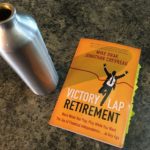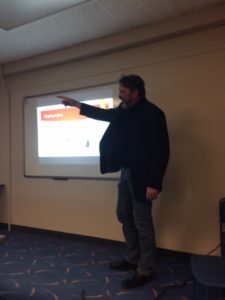 By Hélène Massicotte, Rockstar Finance
By Hélène Massicotte, Rockstar Finance
Mike and Jonathan walk the talk. They both have made sound financial decisions that enabled them to leave their corporate lives (either through retirement or redirection), allowing them to shift their focus toward what they wanted to do next without having to have money be the primary driver.
How can we start stacking the deck in our favor to do the same? By:
- Following the “Seven Eternal Truths of Financial Independence”
- Focusing on one important formula
- Forgetting traditional notions of retirement
#1. The “Seven Eternal Truths of Financial Independence”
When it comes to managing money, most of us want to improve our odds of success. That means ensuring we behave in a way that reduces the financial obligations that work to limit our personal and professional choices. The authors suggest the following behaviors can do a great deal to help us increase our financial flexibility:
- Live below your means
- Pay yourself first
- Get out of debt
- Buy a home and pay it off as soon as possible
- Be an owner, not a loaner
- Never say no to free money from your employer
- Take the government up on its few offers of free money
Two of these include interesting twists on the theme beyond what is usually covered in what’s considered mainstream financial advice:
#4. Buy a home and pay it off as soon as possible. This is great advice for those among us who want to own a home, but the authors take it one step further: we should look at our home as part need and part want. Need is the bare minimum of what we need in a home: shelter, basic utilities, safety, minimum square footage, proximity to other needs, etc. Want are the extras beyond what we need: extra space, extra features, better privacy, less noise, better outdoor space, better-than-needed neighborhood, etc.
Looking at housing this way can help us consider the appropriateness of the largest physical asset class we’re likely to ever own. It’s easy to justify buying too much house, thereby turning a good purchase into a bad one, and this “need vs want” can help us keep the inflation in check.
#5. Be an owner, not a loaner. This suggests that, though bonds are lower-risk investment vehicles, they won’t offer the returns that equity can, even when these are risk-adjusted. The authors suggest a diversified portfolio that includes high-quality dividend paying stocks and stress that qualifying dividend-paying stock income also offers some tax advantages over bond-related income for investments that are held in non-tax-sheltered accounts.
#2. The Freedom Formula
Mike and Jonathan managed to increase choice in their lives by focusing on one important formula:
PASSIVE INCOME > NON-DISCRETIONARY EXPENSES = FREEDOM
Continue Reading…
 The other day I was at my local bank branch doing some business and the teller asked me how I was enjoying my retirement.
The other day I was at my local bank branch doing some business and the teller asked me how I was enjoying my retirement.




